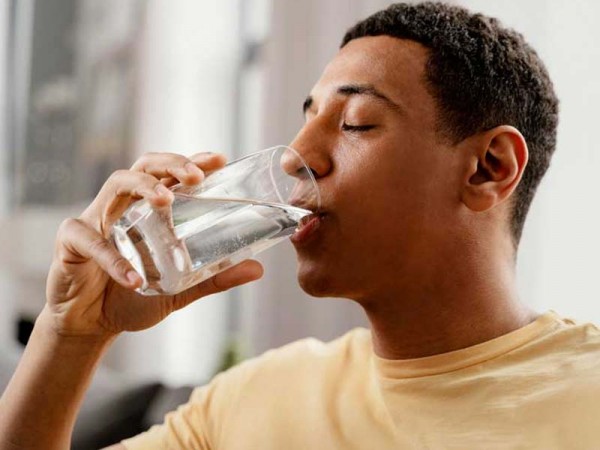
We've all experienced the relief of sipping a glass of ice-cold water on a scorching summer day. It's a simple pleasure that provides instant refreshment, quenching our thirst and revitalizing our spirits. However, while the immediate gratification is undeniable, it's crucial to understand the potential harm that can accompany this seemingly innocent act.
The Shock to the System: When we consume ice-cold water, especially during hot weather, we subject our bodies to a sudden temperature shock. Our internal organs, accustomed to operating at a stable temperature, are suddenly confronted with a drastic decrease in temperature. This shock can disrupt the normal functioning of our digestive system and hinder our body's ability to absorb nutrients effectively.
Sluggish Digestion: One of the primary concerns associated with drinking cold water, particularly after meals, is its impact on digestion. Cold temperatures can cause the blood vessels surrounding the stomach to constrict, slowing down the digestive process. This delay in digestion can lead to bloating, discomfort, and even indigestion.
Caloric Expenditure: Contrary to popular belief, drinking cold water does not significantly contribute to weight loss. While it's true that our bodies expend energy to heat up the cold water to match our internal temperature, the number of calories burned in this process is minimal. Therefore, relying on cold water consumption as a weight loss strategy is unlikely to yield significant results.
Throat Irritation: For some individuals, consuming very cold beverages, especially on an empty stomach, can irritate the throat lining and exacerbate conditions such as sore throat or tonsillitis. The abrupt temperature change can trigger a reflexive response, causing the muscles in the throat to contract involuntarily.
Impact on Hydration: Although cold water may provide temporary relief from the heat, it's essential to consider its long-term impact on hydration. Some studies suggest that drinking cold water can lead to constriction of blood vessels and a decrease in overall hydration levels compared to room temperature water. Opting for lukewarm water, especially during strenuous physical activity, may be more conducive to maintaining adequate hydration.
Alternatives for Cooling Down: Fortunately, there are plenty of alternatives to quenching your thirst and cooling down during the summer months that don't involve consuming ice-cold water. Infused water with fresh fruits or herbs, coconut water, and herbal teas are all excellent choices that offer hydration without the potential drawbacks associated with very cold beverages. While the allure of cold water on a hot day is undeniable, it's essential to be mindful of its potential hazards. By understanding the impact of cold water consumption on our bodies and exploring alternative hydration options, we can ensure that our summer refreshment habits promote health and well-being.
US Trade Delegation to Explore Agribusiness Opportunities in India
Indian Business Leaders Embrace AI for Growth and Efficiency
India Adds 25 New Billionaires: Diverse Backgrounds, One Common Success Story